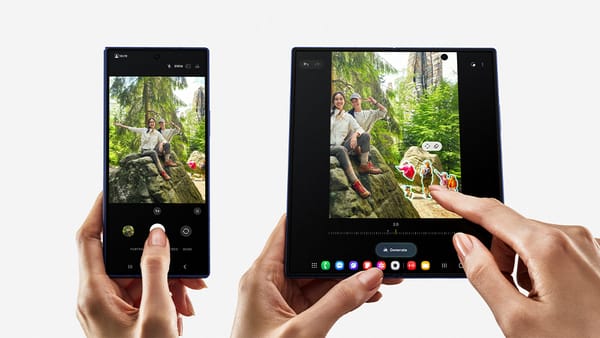How Emerging Technologies Will Redefine Education and Learning Experiences by 2025

future education technologies, emerging tech in learning 2025, technology impact on education
In an era where technology is evolving at an unprecedented pace, the realm of education is poised for transformative changes. By 2025, emerging technologies are set to redefine how we learn, teach, and interact with educational content. From artificial intelligence to augmented reality, these advancements promise to make learning more engaging, personalized, and accessible. Here’s a look at how these technologies will shape the future of education.
Artificial Intelligence: Personalized Learning at Scale
Artificial intelligence (AI) is revolutionizing education by offering personalized learning experiences tailored to individual needs. AI-powered platforms can analyze students' learning patterns, strengths, and weaknesses to deliver customized content and recommendations. Tools like intelligent tutoring systems and adaptive learning platforms will provide real-time feedback and adjust learning paths to optimize educational outcomes. This approach ensures that students receive the support they need to succeed, making learning more efficient and effective.
Augmented Reality (AR) and Virtual Reality (VR): Immersive Learning Experiences
Augmented reality (AR) and virtual reality (VR) are set to transform traditional learning environments by creating immersive experiences that enhance understanding and engagement. AR can overlay digital information onto the physical world, enabling interactive learning through simulations and visualizations. VR, on the other hand, offers fully immersive environments where students can explore historical events, scientific phenomena, or complex concepts in a virtual space. These technologies will make learning more interactive and memorable, bridging the gap between theoretical knowledge and practical application.
Blockchain: Secure and Transparent Credentials
Blockchain technology is making waves beyond cryptocurrencies, and its potential in education is significant. By using blockchain for digital credentials and certificates, educational institutions can provide secure and verifiable records of academic achievements. This technology ensures that credentials are tamper-proof and easily accessible, reducing fraud and simplifying the verification process for employers and educational institutions. Blockchain will also enable lifelong learning by tracking and validating skills and qualifications across different platforms and institutions.
Internet of Things (IoT): Smart Classrooms and Connected Learning
The Internet of Things (IoT) is transforming classrooms into smart learning environments. Connected devices such as smart boards, sensors, and wearable technology will provide real-time data on student engagement, performance, and well-being. IoT-enabled tools can automate administrative tasks, facilitate seamless communication between students and teachers, and create adaptive learning environments that respond to individual needs. This connectivity will enhance the overall learning experience and streamline educational processes.
5G Connectivity: Enhanced Access and Collaboration
The rollout of 5G technology will significantly impact education by providing faster and more reliable internet connectivity. With 5G, students and educators will have access to high-speed data transfer, enabling real-time collaboration and access to cloud-based resources. Virtual classrooms, live-streamed lectures, and interactive content will become more accessible and efficient, breaking down geographical barriers and fostering global learning communities.
Gamification: Engaging and Motivating Learners
Gamification, the integration of game elements into educational contexts, is gaining traction as a powerful tool for engagement and motivation. By incorporating game-like features such as rewards, challenges, and leaderboards, educators can create a more dynamic and interactive learning experience. Gamified learning platforms will make education more enjoyable and encourage students to take an active role in their own learning journey.
Data Analytics: Insights-Driven Instruction
Data analytics is transforming how educators approach teaching and learning. By analyzing data from various sources, including student performance metrics, engagement levels, and feedback, educators can gain valuable insights into the effectiveness of their instructional methods. These insights will enable data-driven decision-making, allowing for more targeted interventions and strategies to support student success.
As we look toward 2025, emerging technologies are set to redefine education and learning experiences in profound ways. From personalized learning powered by AI to immersive experiences with AR and VR, these advancements will create more engaging, accessible, and effective educational environments. Embracing these technologies will not only enhance the learning experience but also prepare students for a future where technological literacy is crucial. The future of education is here, and it promises to be as innovative and transformative as the technologies driving it.




